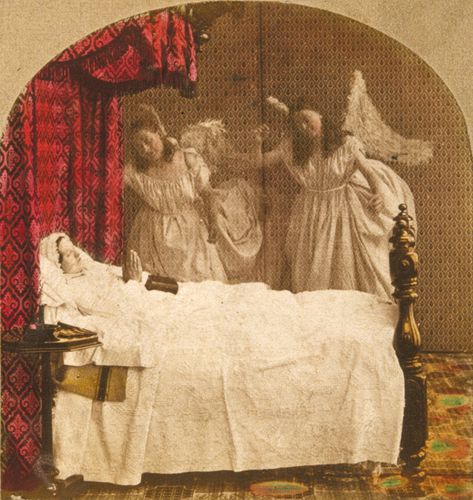
There’s a report just out from Demos on death and dying (why don’t we get chronological and say dying and death?). It’s by Charles Leadbeater, somewhat of a hero of mine, and Jake Garber. It’s called Dying for Change. It comes out at the same time as the National Council of Palliative Care’s The Missing Piece: Meeting People’s Spiritual Needs in End of Life Care. I’ll talk about the latter another time. I would only make the observation now that the 136pp Demos report is free to download; the 20pp NCPC report costs a bloody tenner.
Here are some extracts from the Demos study to whet your appetite. The scope of the full report is wider and, of course, fuller. It also offers radical alternatives to the way we do things now. Leadbetter begins by describing the death of his father:
Bill’s death was not a tragedy. He lived a long, happy and healthy life. Some of that life he owed to interventions by the medical profession: operations to fix his knees and sight.
Without modern medicine he would not have been alive at the age of 86. Yet the medical profession that had extended his life was unable to provide him with a good way to die.
Around threequarters of deaths in the UK are ‘predictable’ and follow a period of chronic illness. Dying has become protracted,complex and painful.
Unless we can devise ways to get people to talk about how they want to live while they are dying, our efforts to improve services will be like groping in the dark. It should become standard for people reaching the end of life to create advanced care plans with
the help of friends, family members, trained peers or professionals. Evidence from the USA suggests this can dramatically reduce unnecessary admissions to hospital and
improve care.
· Training in palliative care needs to be much more widespread among doctors, nurses and care home staff at large. Too few doctors, nurses and care home staff are ready to have open conversations with people about the prospect of death and how they want to die.
· We should draw on the models of federated schools to link hospices to groups of care homes, so that hospice skills and values can migrate into care homes.
· Services should be commissioned by end of life trusts in an integrated way that bring together public, private and voluntary providers within a community. – £500 million pa
Our challenge is to help people to achieve what is most important to them at the end of life. That will require the creation of a network of health and social supports so that people can die at and closer to home, with the support of their family and friends, as well as professionals.
If we do not create this social network, then in the decades to come many hundreds of thousands of people will experience unnecessarily distressing deaths. We will die badly in places not of our choosing, with services that are often impersonal, in systems that are unyielding, struggling to find meaning in death because we are cut off from the relationships which count most to us.
Communities and families have coped cooperatively with death for centuries. Only very recently have we become heavily reliant on institutional, professional solutions – care homes and hospitals. There is mounting evidence that the services these institutions offer are costly and inappropriate. A lot of money is spent on public services that people do not want as they are currently delivered, and which are poorly designed to meet their needs.
Download the complete report free here.


It’s going to take me a bit longer to get through all 136 pages, but one small observation for now:
if £500,000,000 is 2.5% of NHS end of life care budget, that means every man, woman and child in Britain spends almost £8 a week on this. That’s more than I spend on fags, and I reckon we shouldn’t still be at the debating stage while this sort of dosh is going down the toilet on our behalves.
ps: if the government succeeds in its apparent long-term aim of banning smoking altogether, with its attendant duty payable, where the f-ck’s the dosh going to come from to IMPROVE the service to the dying?